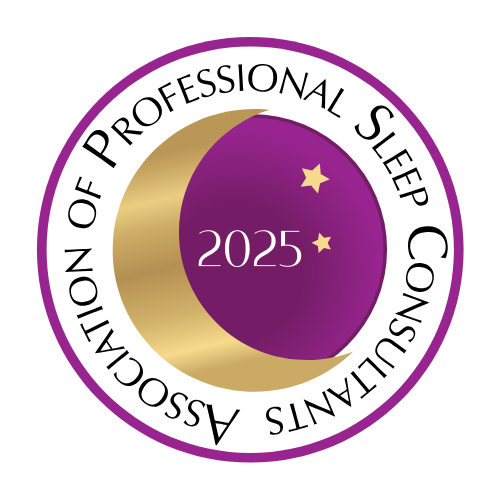From Newborn Sleep Patterns towards Healthy Sleep Habits
Author Name: Heidi Holvoet, PhD
A
newborn's
sleeping
skills are governed by her newborn sleep patterns
. Their
optimal development towards bigger is crucial for good health now and later on.
Developing
rapidly, especially in the first six months,
newborn and baby sleep patterns explain why baby's naps and nights can
be so unpredictable, in those
first months, and even past one year old.
Understanding
this development
helps us guide our child in the best
possible way: by accepting what is inherent to her maturity and by
steering towards good habits that fit our daily lives. An overview ...
The
first six months
are key in sleep development: at no
other stage in life do sleep patterns
develop this rapidly. After six months, the sleep
patterns continue to develop. Around the age of four close-to-adult
sleep patterns are reached.
How
much is enough
continues to depend on age, but also on
personality and environment.
Developing newborn sleep patterns
The main characteristic of a newborn's sleep pattern is
the lack of a circadian rhythm
.
So indeed, our baby has no choice when giving us a hard time with
broken nights, for her there is just no difference between day and
night ...
A clear daily
routine and light/dark cues can help
instill
this day-night rhythm towards a
newborn
baby sleep schedule
.
Different things
influence
the natural infant sleep patterns
. This results, as usual, in
(large)
differences
between babies
: some seem to
get
our rhythm in a
snap and others may take many months to adjust.
Circadian Rhythms
Before birth, in the
womb, your baby was not on any sleep-wake schedule like us. She did
follow active-quiet cues from mommy's belly, constantly alternating
sleep-like and awake states.
However, there was no day-night difference, no longer naps, no sleeping
through ... in one go:
baby
is not born with a circadian rhythm
.
Circadian
rhythms
govern our body's daily cycle of mainly
wakefulness during the day and sleep during the night - with also
low
points during
the day and
high
points at night. Daily routines and (natural) light are key cues that
establish and reinforce this rhythm.
After birth
,
newborn sleep patterns
are naturally linked to
food
:
a newborn and growing baby needs food
regularly: ideally in not too big portions but frequently.
Her natural infant sleep patterns reinforce these food needs:
Baby will
wake up
because she needs food
, just long enough for feeding, a
burp and a diaper
filling, some socializing and then back to sleep again. Sleeping: to
develop brain and body, and to be ready for another feeding, burping,
...
A small baby spends a lot of time in so called
light sleep
,
about half of the time. The other half is
quiet sleep
which
is deeper. This results in rather
easy
arousal
, especially shortly (first 30 minutes) after going
to sleep.
She also makes
short
sleep cycles
: 50-minute slots of light and quiet sleep,
after which she wakes up (either completely or else goes straight on to
next cycle). This explains the frequent (night) awakenings.
(We adults do the same, but in 90-minute cycles.)
As the
first weeks
go by, little by little, there will be a bit more awake time: baby
becomes more aware of her surroundings, the socializing with
mom/dad/carer becomes more important.
1 - 6 months baby sleep patterns
Then during
the
following months
, practicing motor
skills requires her to be awake more. And that's how the awake
stretches
become longer. As baby becomes ready to be without food for longer, she
can also
sleep for longer stretches
.
Around 3 to 4 months old,
the
circadian rhythm has usually set in
. Sleep at night will
be different and - in spite of night awakenings - longer than during
the day.
Unfortunately, these abilities are no guarantee for perfect nights ...
At this age, there are other factors besides food and deep sleep:
there's awareness of needing mom/dad,
separation
anxiety
,
teething
,
etc.
6 months and onwards
At about 6 months old, baby starts to reach
a deeper sleep
more
often. Then little by little, towards the age of 4, her sleep cycles
become
longer, going from 50 to 90 minutes. Sleep is starting to resemble
adult sleep more and more,
most
of the work is done
...
As is clear from the above overview,
newborn
sleep patterns
need time to develop. They do so quite rapidly and with a gentle
guiding hand,
grow
towards lifelong healthy sleep habits
. See the
baby
sleep patterns
page for practical tips.
For the right tools and techniques to teach your new baby the right
sleeping
skills you may find my free
Complete
Newborn Sleep Guide
helpful.
Article Author: Heidi Holvoet, PhD - Founder, senior sleep consultant

Heidi Holvoet, PhD, is the founder of the Baby Sleep Advice website and movement, an award-winning author, baby & toddler sleep consultant with 17+ years experience as well as a certified lactation counselor.
Over the years, Heidi has received several awards inluding a Mom's Choice Award (MCA) and National Parenting Awards (NAPPA) for her Baby Sleep Advice website, programs and books. Also, Baby Sleep Advice was awarded "Most Trusted Infant's Sleep Solutions Company 2023" in the Benelux Enterprise Awards 2023.
Heidi continually conducts personal research and participates in continued education and in that way stays up to date with current scientific and pyschosocial infant care.

She is also a member of the Association of Professional Sleep Consultants of which she was one of the earliest contributors. She obtained her PhD degree in physics at the University of Ghent in Belgium.
Heidi is passionate about helping babies and their parents sleep more and better, with her trademark holistic and truly-no-tears approach that has been proven and praised time and again by parents worldwide to be effective and truly no-tears. Respect for you as a parent and your baby, is at the heart of Heidi's warm and kind support. Her approach always keeps in mind a baby's needs and abilities at any given age, is based on pediatric science and the most up to date knowledge in infant care and sleep science.
As well as the award-winning baby sleep programs, Heidi offers popular 1:1 consults and easy-access 30-minute SOS Sleep sessions.

Baby waking every hour?
by Heidi Holvoet, PhD

Sleep schedules by age
by Heidi Holvoet, PhD

Separation Anxiety
by Heidi Holvoet, PhD

Crib safety guidelines
by Heidi Holvoet, PhD

Why does my baby wake up every hour?
by Heidi Holvoet, PhD


